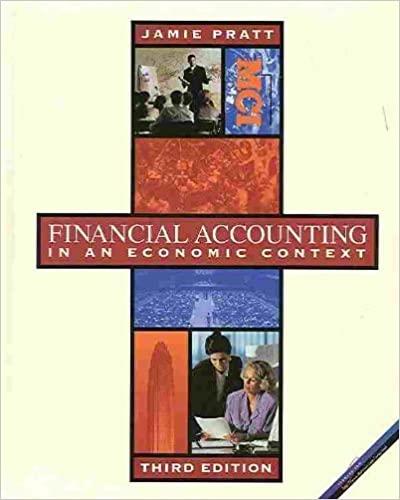Lynch Engineering Firm provided the following income statement for 1997 in its annual finan cial report. 1997
Question:
Lynch Engineering Firm provided the following income statement for 1997 in its annual finan¬ cial report. 1997 1996 Sales Salary expense $2,025,000 Advertising expense 755,000 Bad debt expense 275,000 Administrative expenses 898,000 Janitorial expense 132,000 Supplies expense 281,000 Depreciation expense 963,000 Net income $5,967,000 $5,590,000 $1,794,000 710,000 260,000 832,000 120,000 299,000 5,329,000 978,000 4,993,000 $ 638,000 $ 597,000 ADDITIONAL INFORM ATION: 1. The company declared and paid a dividend of $550,000 in 1996 but did not declare any dividends in 1997. 2. 1996:
(a) 35 percent of the sales were on account.
(b) The accounts receivable balance decreased by $2,980,000 from January 1 to December 31.
(c) As of December 31, the company still owed $145,000 in wages and $67,000 on the supplies used during the year. 3. 1997:
(a) 75 percent of the sales were on account.
(b) The Accounts Receivable balance increased by $1,671,750 from January 1 to December 31.
(c) As of December 31, the company still owed $25,000 in wages and $50,000 in adver¬ tising.
(d) On January 1, 1996, the company had a balance of $13,245 in cash. 4. The company had no write-offs on recoveries of accounts receivable during 1996 or 1997. REQUIRED:
a. Prepare the operating section of the statement of cash flows for 1996 and 1997, using the direct method.
b. Assume that you are a member of the board of directors of the Lynch Engineering Firm. Several influential stockholders have called you and complained that the company gener¬ ated more net income in 1997 than in 1996, yet chose not to declare a dividend in 1997. How would you explain the board’s position on dividends in 1996 versus 1997?
Step by Step Answer:






